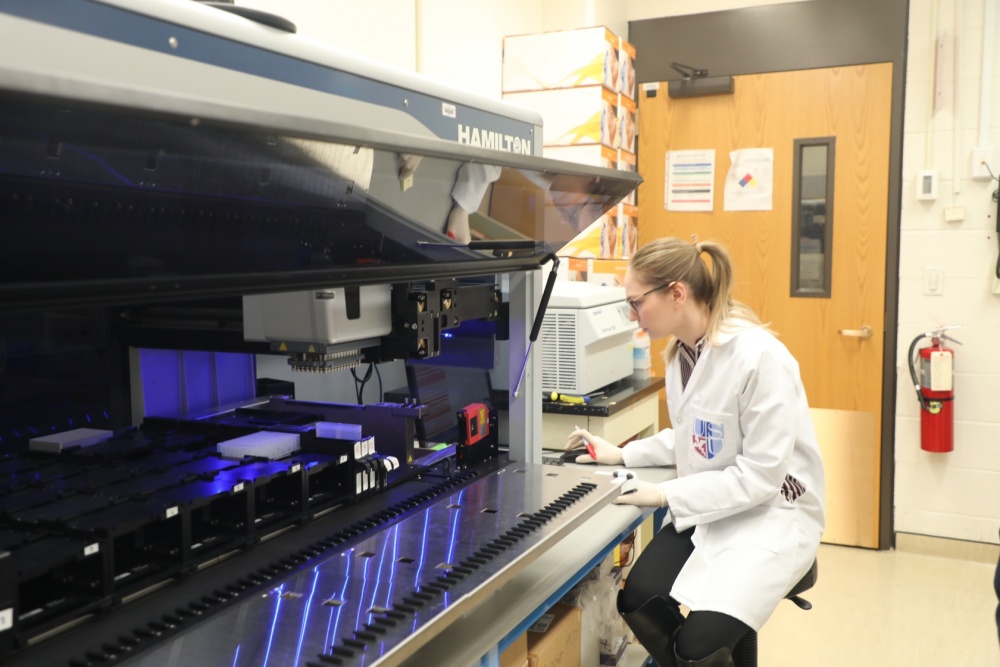July 28, 2020
HJF supported immunological COVID-19 research led by scientists from The American Genome Center and the Precision Medicine Initiative for Military Medical Education and Research, which are both part of the Uniformed Services University of the Health Sciences. Their work was part of the COVID Human Genetics Effort, which is a global consortium combining the efforts of more than 50 sequencing hubs and hundreds of hospitals and scientists.

Participating centers from the United States and around the globe provided samples to study genetic determinants of susceptibility to severe COVID-19 infection. Dr. Clifton Dalgard and his team from The American Genome Center rapidly performed human genomic DNA isolation from residual clinical tissue material and high-throughput, whole genome sequencing to study the genetic influences to COVID-19 disease. In addition to genomic profiling, the team generated DNA templates for T and B lymphocyte repertoire analysis to investigate T cell receptor repertoires for SARS-CoV-2 specific antigens and monitor immunologic response to SARS-CoV-2 infection or vaccine.
Following sequencing, Dr. Matthew Wilkerson and his team from the Precision Medicine Initiative for Military Medical Education and Research conducted primary genome data analysis, which involved sequence alignment, variant calling, and integrated quality analysis to ensure high, uniform sequencing data performance across the cohort and concordance with expected sample properties. These genome data analysis workflows were conducted with high urgency on its on-premise High-Performance Compute platform to meet the immediacy of the project and public health need.
The researchers published two papers in the journal Science (“Inborn errors of type 1 IFN immunity in patients with life-threatening COVID-19” and “Autoantibodies against type 1 IFNs in patients with life-threatening COVID-19”), which reported that individuals with severe forms of COVID-19 disease can present with compromised type 1 interferon (IFN) responses based on their genetics. Type 1 IFN responses are critical for protecting cells and the body from more severe disease after acute viral infection. These findings help to explain why some people with no underlying conditions develop a disease more severe than others in their age group and may also provide a molecular explanation for why more men die from the disease than women.
In addition to Dr. Dalgard and Dr. Andrew Snow from the Uniformed Services University of the Health Sciences, who are co-authors on both papers, HJF employees Miranda Tompkins, Camille Alba, Christopher Luthers, Daniel Hupalo, John Rosenberger, Gauthaman Sukumar, Matthew Wilkerson, and Xijun Zhang, along with graduate student Bradly Bauman in Dr. Snow’s lab, also participated in the research and served as co-authors.